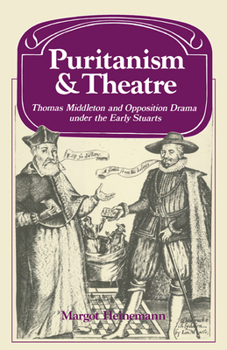Puritanism and Theatre
Select Format
Select Condition 
Book Overview
The closing of the theatres by Parliament in 1642 is perhaps the best-known fact in the history of English drama. As the Parliamentary Puritans were then in power, it is easy to assume that all opponents of the theatre were Puritans, and that all Puritans were hostile to the drama. The reality was more interesting and more complicated. Margot Heinemann looks at Thomas Middleton's work in relation to the society and social movements of his time, and traces the connections this work may have had with radical, Parliamentarian or Puritan groups or movements. In the light of the recent work of seventeenth-century historians we can no longer see these complex opposition movements as uniformly anti-theatre or anti-dramatist. The book suggests fresh meanings and implications in Middleton's own writings, and helps towards rethinking the place of drama in the changing life of early Stuart England.
Format:Paperback
Language:English
ISBN:0521270529
ISBN13:9780521270526
Release Date:October 1982
Publisher:Cambridge University Press
Length:312 Pages
Weight:0.90 lbs.
Dimensions:0.7" x 5.5" x 8.5"
Customer Reviews
0 rating





